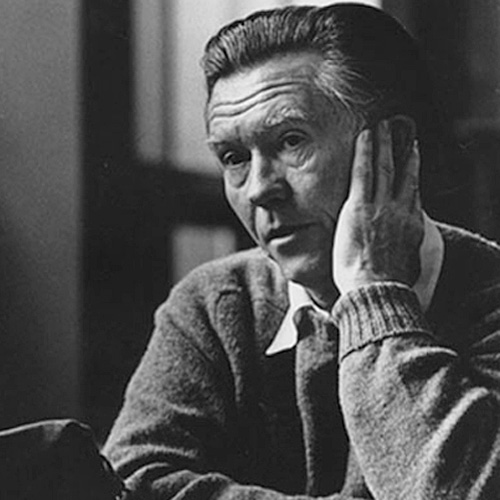If you don't know the kind of person I am
and I don't know the kind of person you are
a pattern that others made may prevail in the world
and following the wrong god home we may miss our star.
For there is many a small betrayal in the mind,
a shrug that lets the fragile sequence break
sending with shouts the horrible errors of childhood
storming out to play through the broken dike.
And as elephants parade holding each elephant's tail,
but if one wanders the circus won't find the park,
I call it cruel and maybe the root of all cruelty
to know what occurs but not recognize the fact.
And so I appeal to a voice, to something shadowy,
a remote important region in all who talk:
though we could fool each other, we should consider—
lest the parade of our mutual life get lost in the dark.
For it is important that awake people be awake,
or a breaking line may discourage them back to sleep;
the signals we give — yes or no, or maybe —
should be clear: the darkness around us is deep.
Published:
1998
Length:
Regular
Literary Movements:
Contemporary
Neoclassical
Anthology Years:
2022
Themes:
Ars Poetica
Education & Learning
Friendship
Literary Devices:
Alliteration
the repetition of the same letter or sound at the beginning of words appearing in succession
End Rhyme
when a poem has lines ending with words that sound the same
Metaphor
a comparison between two unrelated things through a shared characteristic
Personification
the attribution of human qualities to a non-human thing
Quatrain
A stanza made of four lines.
Simile
a comparison between two unlike things using the words “like” or “as”

